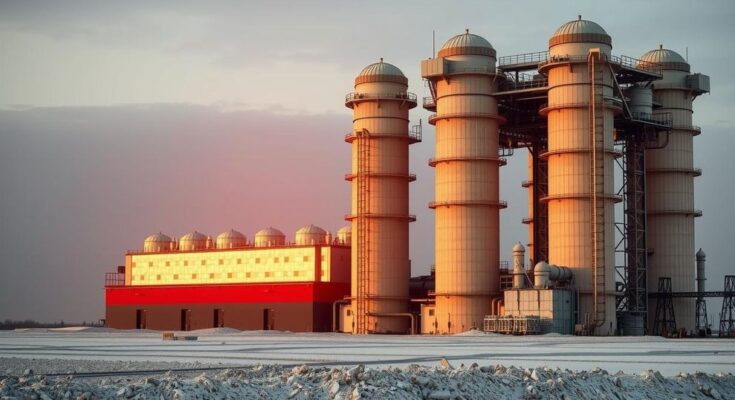The IAEA’s Rafael Grossi warns about Iran’s increased uranium enrichment to 60%, indicating potential risks for nuclear weapon development. His comments point to regional tensions and geopolitical responses, with Israel cautioned against military action due to serious consequences. As global nuclear proliferation discussions intensify, the need for monitoring and diplomacy is crucial to prevent escalation.
The Director General of the International Atomic Energy Agency (IAEA), Rafael Grossi, has expressed significant concerns regarding Iran’s recent decision to escalate the production of highly enriched uranium, stating it is “very worrisome.” His comments followed a notable increase in Iran’s stockpile of uranium enriched to 60%, a level perilously close to the threshold required for nuclear weaponry. Many view this heightened activity as Tehran’s response to its military and diplomatic challenges across the region in recent months, particularly in Syria, Lebanon, and Gaza.
Mr. Grossi, during his remarks at the Manama Dialogue conference in Bahrain, acknowledged vocal political factions in Iran advocating for nuclear armament. However, he noted that current Iranian leadership does not appear inclined to pursue weapon development. He cautioned Israel against any military action targeting Iran’s nuclear sites, highlighting the significant repercussions such an attack would provoke, including retaliatory measures from Tehran and potential radiation exposure.
In a recent IAEA report, Grossi indicated that Iran’s enhancements at its Fordow nuclear facility would markedly increase the production of uranium enriched to 60%. Specifically, the facility is projected to yield approximately 34 kilograms monthly, a stark increase from the prior figure of 4.7 kilograms. Amidst these developments, the IAEA has called for urgent safeguards to confirm that Iran’s enrichment activities comply with its declarations and to prevent any diversion of nuclear materials.
Iran consistently denies ambitions for a military nuclear program. Nevertheless, Grossi pointed out a dramatic evolution in Iran’s nuclear capabilities over the past decade, warning that the advancements made by 2025 will differ substantially from those of 2015. Following a recent visit to Tehran, he conveyed that Iranian officials promised to moderate their 60% enrichment activities, yet ongoing stalled nuclear negotiations with European officials contribute to uncertainties surrounding Iran’s future nuclear intentions.
Grossi remarked on a growing global discourse surrounding nuclear armament, underscoring the delicate state of the global non-proliferation regime influenced by established nuclear nations modernizing their arsenals. This atmosphere has spurred interest from additional states in considering their own nuclear capabilities for security reasons, prompting an alarming normalization of discussions about potential nuclear weaponry acquisition.
The growing concerns over Iran’s nuclear program come amid a backdrop of geopolitical tensions in the Middle East. Following a series of military setbacks for Tehran in regional conflicts, there is speculation that Iran’s increased uranium enrichment may serve as a strategy to bolster its geopolitical standing. The marked rise in uranium enrichment levels and calls from certain political factions within Iran for a nuclear arsenal complicate an already intricate international dialogue. The IAEA’s warnings and assurances from Iranian officials reflect the delicate balance both sides must maintain to prevent escalating military confrontations or further destabilization of the region.
In summary, the IAEA’s recent observations highlight grave concerns regarding Iran’s aggressive uranium enrichment activities, nearing critical thresholds for weaponization. The complexities of Iran’s nuclear ambitions are compounded by its regional challenges and political dynamics, which may exacerbate tensions with neighboring countries, particularly Israel. The global discourse on nuclear proliferation intensifies under these circumstances, necessitating vigilant oversight while diplomatic pathways remain fraught with challenges. Ensuring compliance and safeguarding against potential military actions will be pivotal in navigating this precarious situation.
Original Source: www.bbc.com




